HOME > Basketball
Annual salary of 59.6 million, total income exceeds 1 billion! Do you still want to ask for equity? The Warriors really need to rebuild
9:33pm, 1 August 2025【Basketball】
When Stephen Curry said on the show, "We have low salary and should participate in equity distribution", the entire NBA circle was caught in huge controversy, and players such as Brown gave likes, but some fans criticized Curry for being "not satisfied". The superstar, who holds the league's first annual salary ($59.61 million) and his total career income is about to exceed $1 billion, seems to have touched a contradiction hidden for many years: the boundary between players and capital's interest distribution. But what is worth paying more attention to than this remark is the current dilemma of the Warriors - when the 38-year-old Curry is still chasing more, and when the team's market value is close to 10 billion but is trapped in a dilemma of competitiveness and future, a cruel problem surfaces: perhaps, the Warriors really should rebuild.

From 315 million to 9.4 billion: Curry's "rich-making myth" and unfinished demands
15 years ago, the Warriors' market value was only US$315 million, ranking in the middle and lower reaches of the 30 teams in the league. At that time, the attendance rate of the Oracle Arena was mediocre, and the team missed the playoffs for many years, making it a typical "small market bottom" in the league. No one could have thought that 15 years later, this team would top the league's market cap with a valuation of $9.4 billion, becoming one of the most commercially successful teams in the NBA team.
The turning point of all this is undoubtedly Curry's rise. In the 2009 draft, when the Warriors took the seemingly thin point guard with the 7th pick, no one expected his arrival to completely rewrite the rules of basketball. Since its first championship in 2015, Curry has led the Warriors to 8 years and 4 championships with his epoch-making three-point shooting ability, establishing the "Warriors Dynasty" that spans the entire 2010s. His presence has turned the Warriors from a "playoff edge team" to a "global traffic responsibility": they moved from Oracle Arena to Chase Center (a cost of $1.3 billion), and the season ticket price soared 10 times. The team's sales around the team have ranked first in the league for eight consecutive years, and even drove the sports economy of the San Francisco Bay Area.

data will not lie: Before Curry joined, the Warriors' average annual revenue was less than US$100 million; in the 2023-24 season, this number exceeded US$700 million. Boss Joe Lacob bought the Warriors for $450 million in 2010. Now the team's valuation is 9.4 billion, which has increased 20 times in 2014. Curry's "rich-making effect" behind this has made great contributions.
For this reason, Curry's demands seem to have "reasonable". He emphasized on the show: "The league has grown 10 times in recent years. As promoters, we can only get a fixed salary and cannot share the benefits of equity appreciation." Judging from the contribution, he is indeed worthy of a higher return: he held a "child labor contract" of 12.7 million US dollars for 4 years, but led the team to win the first championship; even at the age of 38, he still averaged 26.2 points, 6.1 assists last season, and a three-point shooting percentage of 41.2%, making him the only All-Star in the team.

According to the existing contract, Curry's annual salary in the 2025-26 season will reach $62 million, and his total career salary income will exceed $500 million; with business endorsements such as Under Armour and JPMorgan Chase, his total career income will inevitably exceed $1 billion. This is already the ceiling of players’ income in NBA history. But Curry's appeal is essentially a question of the "imbalance between capital and labor distribution". As he said: "The team's market value has increased by 20 times, the boss's wealth growth is exponential, and our salary is only linear." But the problem is that the NBA has never been a "distributed by work" utopia, but a capital-led business alliance - this has never changed since the day the league was born.
Capital Game: Why is it difficult for players to touch the "equity cake"? The core reason why Curry's remarks caused controversy is that it touches the underlying logic of the NBA's business model: players are "high-value assets", not "capital partners". In essence, the NBA is more like a "top global entertainment company", with 30 teams being its "branch" and players being its "core products". The bosses invest capital to build teams and build platforms. Players enhance "product value" through talent and efforts, and the two parties agree on profit distribution through contracts - this is closer to "employment relationship" rather than "partnership relationship". Just like the Colosseum, the audience paid for the wonderful performance of "Gladiator", but the ownership of the Colosseum will always belong to the nobles.
From the perspective of actual operations, it is almost impossible for players to participate in equity distribution. First, players have an average career of only 4.5 years and are extremely liquid. Curry has played for the Warriors for 15 years. More stars such as Durant (Thunder, Warriors, Nets, Suns, Rockets), James (Cavs, Heat, Lakers) and many teams. If each team allocates equity, it will not only lead to dilution of equity, but also trigger the risk of "short-term cashing out" - As the Los Angeles media questioned: "If Curry gets equity, will he cash out at a high level before retirement?"

Second, the team's market value growth is the result of multiple factors, not the credit of a single player. The surge in the Warriors' market value, in addition to Curry's performance, also includes new broadcast contracts (a 9-year $75 billion contract that took effect in 2025, an increase of 160% from the previous one), Chase Center's commercial development, league globalization strategy (the Warriors are one of the teams with the most competitions overseas). The decision of the boss Lacob is also crucial: he dared to bet on the "small ball tactics" in 2014, insisted on renewing Thompson and Green for a sky-high price in 2019, and spent 1.3 billion yuan to build the Chase Center in 2020 - these capital operations are irreplaceable by players.
Third, the capital accumulation of the bosses is "intergenerational inheritance", but the peak period of the players is "a flash in the pan". As a venture capitalist, Lacob already has billions of dollars in assets before buying the Warriors; Clippers boss Ballmer (net worth $96 billion) and Nets boss Cai Chongxin (net worth $11 billion) are even the top rich. Their wealth comes from decades of capital operation, while players' income depends on just over a decade of career. From the perspective of capital logic, "short-term workers" share "long-term capital appreciation" does not conform to business rules in itself.

In fact, the NBA has long been able to share the league's growth dividends through "salary cap rise". The league’s salary cap was $58 million in 2010, and it has risen to $136 million in 2024, up 2.3 times in 2014; the maximum salary contract has increased from $20 million in 2010 to $60 million today. Curry's annual salary of 59.61 million is equivalent to $130 million in 2010, which itself is a direct reflection of the alliance's growth. Curry's appeal may have emotional rationality, but in the business rules of the NBA, it is more like a "cry of idealism" - it sounds nice but difficult to implement.
The Warriors' dilemma: There is no hope of winning the championship, is it dead in the future?
What is more urgent than Curry's remarks is the Warriors' current "structural crisis". While the team is still arguing over Curry's "equity appeal", a more cruel reality is in front of them: they have lost their competitiveness in the championship, but are still overdrawing their future. Last season, the Warriors barely entered the playoffs as 10th in the West and were eventually eliminated by the Kings, ending out of the first round of the playoffs for two consecutive years. This lineup with Curry, Thompson and Green as the core is no longer the invincible army with "73 wins": Although Curry's data is still impressive, the defense end has become a weakness for opponents; Thompson, 34, averaged only 17.9 points per game, and his three-point shooting percentage fell to 38.5%, and his defensive pace has slowed down significantly; Green, 34, averaged 6.8 points per game, and was almost invisible on the offensive end, but he had an annual salary of $27.5 million.
What is more deadly is the team's salary structure. Next season, Curry will cost 59.61 million, Butler will cost 54.13 million, and Green will cost 140 million yuan. The total salary of the Warriors will reach 206 million yuan, which is only 1.3 million US dollars from triggering the "second tyrant line". What's terrible is that their average age is 35 years old. What's worse is that the team has almost no "rebuilding assets": the first round pick in 2025 has been traded to the Pistons, the first round pick in 2027 is protected (protected with the top 14 picks). Among the young players, only Kumingga (21 years old) showed its potential, but had a stalemate with the team due to "ball rights allocation" - Kumingga publicly demanded a deal during the offseason, believing that he had "no future" with the Warriors.

This is the Warriors' dilemma: continue to compete for the championship around the "three elders", salary pressure crushes the team, and young players can't see hope; but if they give up the championship, they are sorry for Curry's final peak period. But the reality is that they are no longer "competing". Last season, the Warriors ranked 12th in the offensive efficiency league and 15th in the defensive efficiency. This "no up or down" performance is a direct reflection of the aging of the lineup and the fault of the character players. When Curry left the court, the Warriors lost 9.2 points in a net loss of 100 games, fifth from the bottom in the league - this team has long lost the confidence to "win without Curry."
What is even more terrifying is the risk of a "market value bubble". The Warriors' valuation of 9.4 billion depends largely on the traffic effect of "champion expectations" and Curry. Once Curry's form declines and the team misses the playoffs for a long time, fans' loss, sponsor withdrawal, and ticket prices plummet. Just like the Lakers in the 2010s, Kobe's market value fell from 6 billion to 4.4 billion after retirement, and it did not rebound until James joined - if the Warriors do not adjust in time, they may repeat the same mistake.

Reconstruction may be the greatest respect for Curry. When it comes to "reconstruction", many people will think it is a "betrayal" to Curry. After all, he is the number one person in the Warriors' team history and a hero who has brought the team from the bottom to the top. But rationally speaking, reconstruction may be the choice to be responsible for Curry and the Warriors - not "giving up", but "decent transition". Reconstruction does not mean sending Curry away immediately, but "taking Curry as an anchor to cultivate a new core." The Warriors can keep Curry and trade Green and Butler to free up their salary space; focus on cultivating young players such as Kumingga and Pojemsky, so that they can learn from Curry and gradually take over the torch. This will not only allow Curry to remain competitive at the end of his career (at least into the playoffs) but also retain the future for the team.
From a historical perspective, the transition model of "Legendary twilight years + Rise of Newcomers" has long been verified. The Spurs in the 2010s introduced Leonard at Duncan at 38 to achieve "seamless connection"; the Celtics in the 2020s traded Tatum at 35 to start a new dynasty. If the Warriors can follow suit, they can not only avoid a "cliff-like decline" but also allow Curry to enjoy the sense of accomplishment of "passing and helping" at the end of his career - this may be more meaningful than forcing the championship and finally leaving the game in disgrace.
What's more, Curry's commercial value has long surpassed the arena. Even though the Warriors' record declined, his jersey sales, sneaker sales and social media traffic can still support the team's business revenue. The "non-match revenue" of Chase Center, such as naming rights, sales of peripheral products, etc., has accounted for 40% of the Warriors' revenue, which gives the team enough buffer space to complete the reconstruction.

For Curry, accepting reconstruction may also be a kind of "relieving". Over the past 8 years, he has been constantly overdrawing his health for the championship, and even took the initiative to cut his salary by $10 million in 2017. Now, at the age of 38, he no longer needs to prove himself with the championship. Instead of struggling in the quagmire of "there is no hope of competing for the championship", it is better to enjoy basketball itself and watch the growth of a new generation of players - just like Jordan's young players watching the Bulls in the later period, Kobe looked at the Lakers' "Youth Army".
Warriors boss Rakob once said: "We want to become 'eternal competitors', not 'flash-and-short champions'." To achieve this sentence, we must let go of our obsession with the "afterglow of the dynasty" and bravely start a new cycle. Curry's contribution is worth remembering forever, but the team's future should not be tied to only one person.
Related Posts
- Yang Hansen was recalled by the Trail Blazers! The team reporter said that even if he cannot become Jokic, he is by no means an ordinary role player
- A 16-point reversal and a 3-game winning streak! With Banqueiro absent, Xiaowa scored 25+6+5 and scored key three-pointers in a row.
- Tyron Lu talks about superstar breakup: If Irving has not left the team, I think James will stay with the Cavaliers
- American News: The Lakers are expected to maintain their current lineup and enter training camp. They look forward to Vincent & Kleber s performance
- Stockton: NBA s current style is weak; they are all jumpers, players love load management; their salary is still high
- The Rockets have signed 4 players in a row, the Clippers finally take action, and the Warriors target appears
- Morant bid farewell to Bain: 5 years of brotherhood breaking, muscle shooter shoots magic to change the Eastern Conference pattern
- More than the third brother! Homgren becomes the X factor?
- Funny, Brunson was named the 2025 NBA Playoffs Best Offensive Player and Worst Defensive Player
- Why can t the Los Angeles Clippers win the NBA championship?
Hot Posts
- Yang Hansen was recalled by the Trail Blazers! The team reporter said that even if he cannot become Jokic, he is by no means an ordinary role player
- A 16-point reversal and a 3-game winning streak! With Banqueiro absent, Xiaowa scored 25+6+5 and scored key three-pointers in a row.
- Tyron Lu talks about superstar breakup: If Irving has not left the team, I think James will stay with the Cavaliers
- American News: The Lakers are expected to maintain their current lineup and enter training camp. They look forward to Vincent & Kleber s performance
Recommend

Saudi Arabia is upset by Jordan to be promoted to second place in the group! Rahman scored 57 points in two games, and the host is aiming at the quarterfinals?
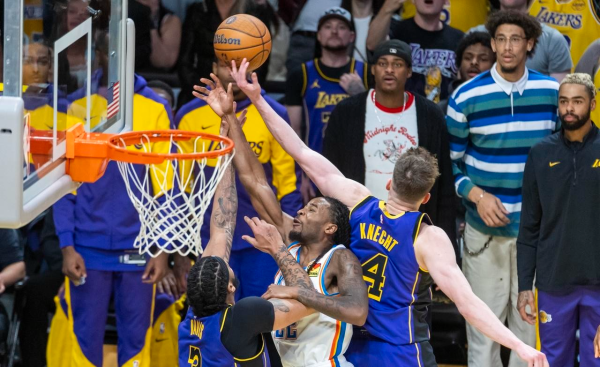
The Lakers may win Robert Williams III in 3 different trading options

When playing with Adams, KD scored 40.3 points per 100 possessions& 42.3% of three-pointers; on the contrary, he scored 29.7 points&33.3%
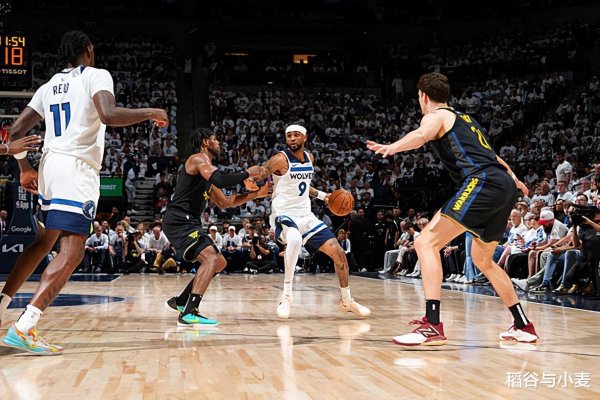
The Timberwolves substitute player did not perform well in the entire playoffs
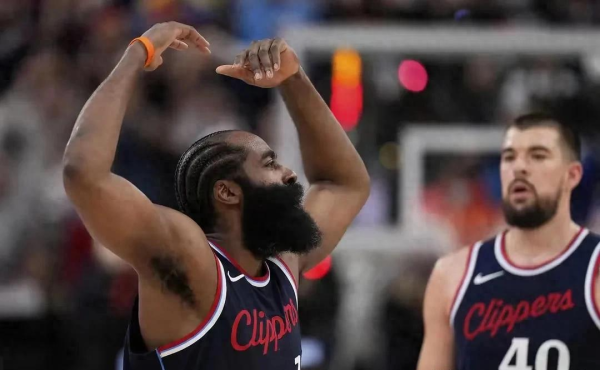
The Clippers officially announced that they had completed a contract renewal with Harden!
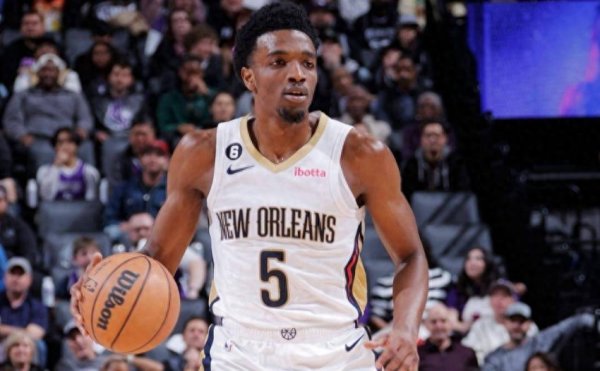
Defensive champion Jones becomes a hot commodity, Mavericks lead the battle

14+15 plus or negative value! Homegren dominates the inside with injury: Alexander is the best match for the championship
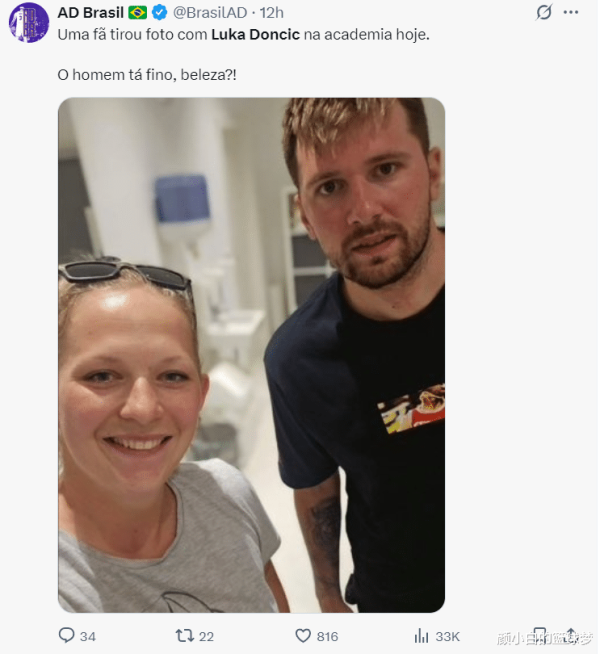
Doncic has successfully lost weight! Foreign media showed hard training in the gym + reasonable diet, and was rated as the fourth largest in the league